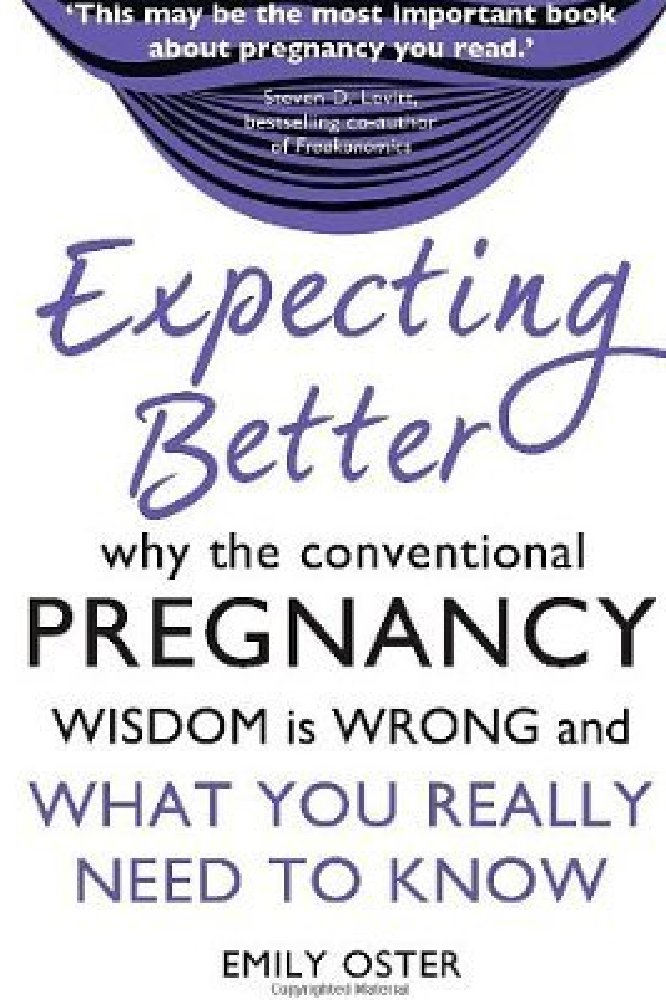
Expecting Better
Expecting Better is a pregnancy book for women who want to get down to the real facts (and numbers) behind their pregnancy. I’m an economist, and when I got pregnant I found myself facing a lot of new decisions – and a lot of conflicting information. I quickly realized that recommendations in pregnancy were based on studies and data – and evaluating these is exactly what my training in economics and statistics is suited for. Expecting Better breaks down the decisions and the numbers so women can take control.
Why if you haven’t had a home birth before is there a chance you will end up in hospital?
This can happen with any home birth; if things are not going well, there is some chance you’ll end up at the hospital. For first-time births, it’s around 30%.
Why is gardening dangerous during pregnancy?
The risk is small, but there is evidence that gardening can put women at risk for toxoplasmosis in pregnancy. This can cause birth defects. If you are gardening, consider a mask and gloves.
Why are you advised to not eat raw fish when pregnant?
There is a concern about salmonella and other food borne illnesses in raw fish. This concern is similar in magnitude to what you’d have if you were not pregnant. If you get your sushi from a reputable source, feel free to keep eating it (but stay away from tuna and swordfish, which are high in mercury).
Why can it be difficult to look at the evidence surrounding the myths and rules of pregnancy?
I think women are trusted and many women look for this themselves. But there is a lot of data and it can be hard to sort through it, and time with your doctor is limited. My goal in the book is to break down the data, and help women think about this for themselves.
Please tell us about your professional background.
I have a Ph.D. in economics from Harvard, and I’m on the faculty at the University of Chicago Booth School of Business.
What is next for you?
Back to teaching and research!

